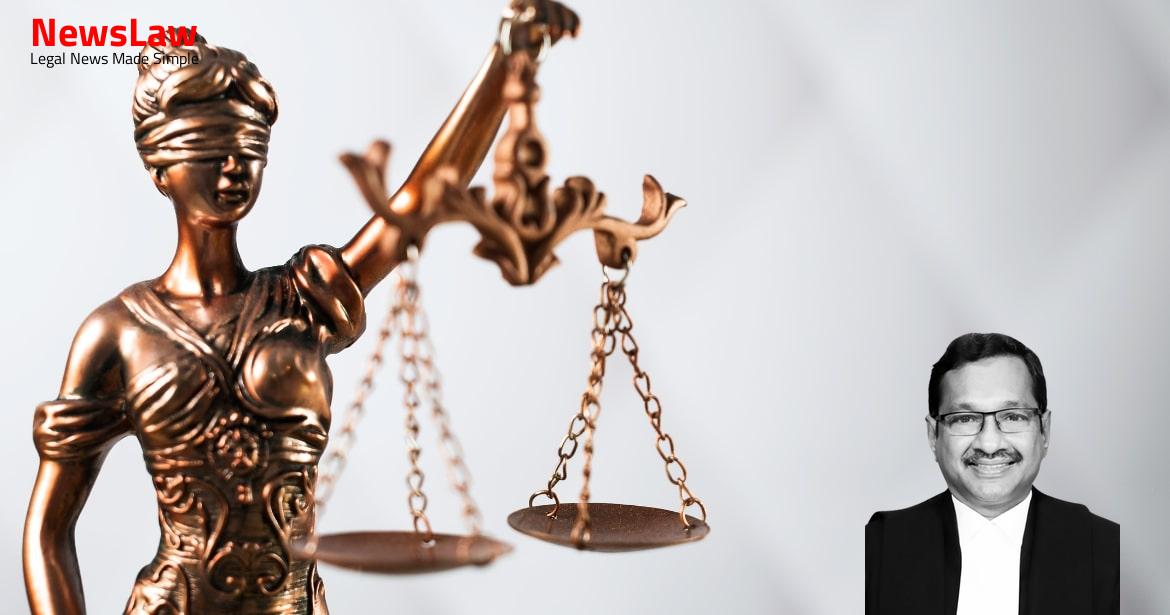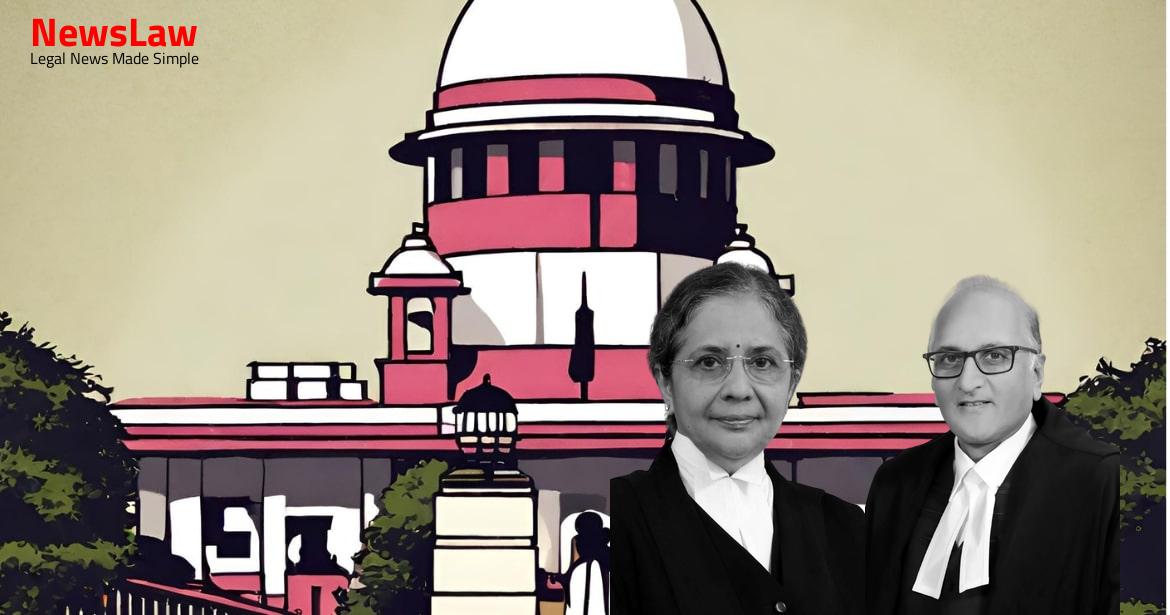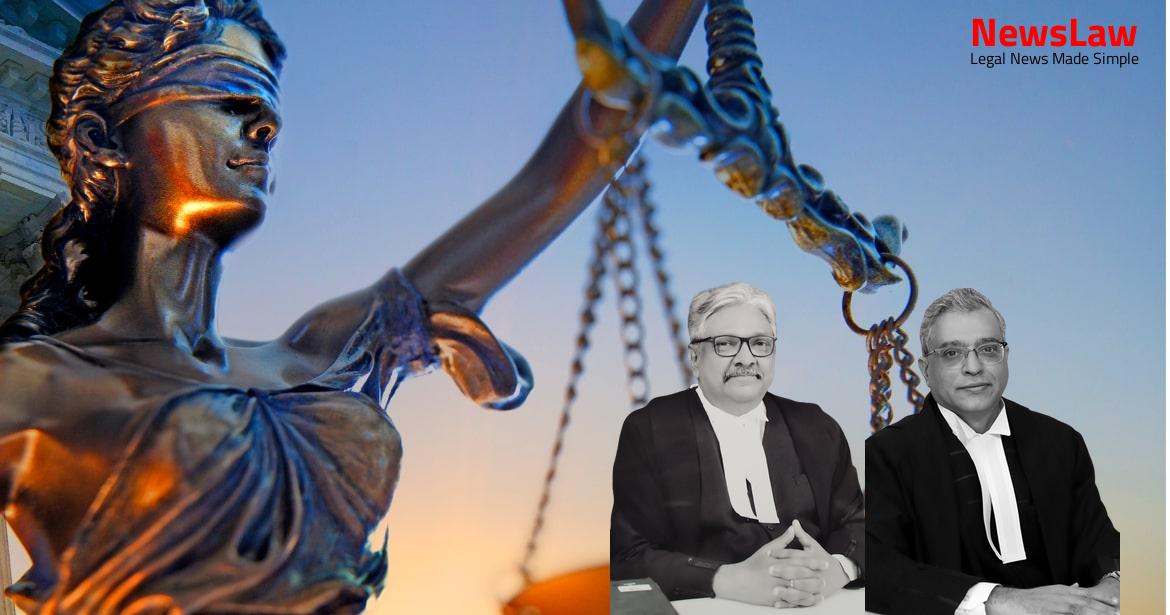Explore a detailed legal analysis of a complex land dispute case where the court’s examination of rules and past precedents played a crucial role in the final decision. This summary delves into the importance of legal procedures and the impact of time lapses in challenging orders. Stay tuned for fascinating insights!
Facts
- Records were not produced by revenue authorities as they were not traceable.
- No documents for conferment of rights were produced by respondent No.4.
- Land was concluded to be free of cost based on other material on record.
- Land alienation was barred due to being free of cost and allotment rules.
- One acre of land was sold to the original petitioner in violation of rules on 20.12.1971.
- Leave was granted on 29.07.2013 with interim order to be continued for the appeal.
- Appellant raised various defenses including adverse possession.
- Karnataka Scheduled Caste and Scheduled Tribes Act was enacted on 01.01.1979 to protect lands granted to SC/ST community.
- Two acres of land were granted to Late Junjappa on 07.06.1941.
- Respondent No.4 challenged the land transactions by filing writ petitions that were later dismissed due to Rule violation.
- Assistant Commissioner invalidated sales and sought to restore land to respondent No.4.
- Notice was issued on 08.07.2010 for maintaining status quo regarding the land in question.
- Occupancies granted to Depressed Classes and poor communities shall not be alienated under Rule 43(8) of the Code.
- Land is stated to be free of cost and belonged to Adi Karnataka Caste.
- Respondent No.4 claims to be the grandson of the original grantee and filed a claim for annulment of transfer in 2000.
Also Read: Supreme Court Judgment on Single Till Mechanism for HRAB Calculation: A Comprehensive Analysis
Analysis
- The case primarily revolves around the absence of documents and the presumption under Rule 43(8) without considering the documents.
- The argument is made that the delay and laches should favor the appellant(s) due to the passage of time, even if strict limitations do not apply.
- The submission is that Rule 43(8) creates a bar against alienation, but the original grant was not produced.
- The transaction in question took place before the Act came into force, which is highlighted as a significant timeframe.
- The lapse of time should not defeat rights if a sale goes against Rule 43(8), despite the time since the respondent attained majority.
- The delay of about 20 years before taking action is deemed unreasonable based on past judicial proceedings in similar scenarios.
- Section 5 of the Act allows for annulment of transfers without limitation, but it must be done within a reasonable time.
- The Court considered the extraordinary time elapsed as a significant factor in the decision-making process.
- The necessity of recourse to the Court for challenging an order with patent or latent defects has been repeatedly pointed out in legal authorities.
- The case of Nekkanti Rama Lakshmi v. State of Karnataka & Anr. highlighted the importance of taking legal proceedings to establish and invalidate a cause.
- Failure to challenge an order in court allows it to remain effective for its ostensible purpose despite any flaws it may have.
- The case of Vivek M. Hinduja & Ors. v. M. Ashwatha & Ors. discussed the provisions of the same Act from the period 1946-47.
- Citing the case of Smith v. East Elloe Rural District Council, it was noted that even orders made in bad faith can still have legal consequences without a visible invalidity mark.
- Delay of 21 years from the date the Act came into force and 30 years from the transaction.
- Inordinate delay cannot be condoned.
- The period of delay is not reasonable.
- The time periods are similar to previous cases where delay was not condoned.
- Following the dicta laid down in Vivek M. Hinduja and Nekkanti Rama Lakshmi cases.
Decision
- The impugned orders of the Assistant Commissioner, learned Single Judge, and the Division Bench have been set aside.
- The order of the Special Deputy Commissioner is affirmed.
- As a result, the land will continue to vest with the appellant(s).
- The appeal has been allowed, with the parties bearing their own costs.
Also Read: Selection and Appointment of Judicial Officers in Himachal Pradesh
Case Title: SHIVANNA (DEAD) THROUGH LRS. Vs. STATE OF KARNATAKA (2021 INSC 787)
Case Number: C.A. No.-006212-006212 / 2013



